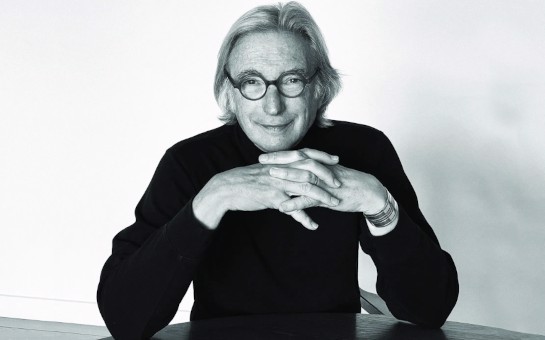- Michael Tilson Thomas
Meditations on Rilke (2019)
- Kongcha (World)
- Mz,bbar + 2(II:pic).2(II:ca).1+Ebcl+bcl.2(II:cbn)/2.2.2.0/timp.perc/pf.cel.hp/str
- Mezzo-soprano, Bass Baritone
- 40 min
- Rainer Maria Rilke
- German
Programme Note
Composer note
My father told me a story that goes something like this:
Sometime in the 1920s, in a bar just outside of Oatman, Arizona, sat an old piano. Behind it there sat a seemingly older pianist. He’d been there since forever. No one could remember when he wasn’t. He played for tips and for drinks and was happy to provide whatever music anyone wanted to hear. Occasionally though, he channeled the spirits of Schubert, Mahler, and Berg. Everyone had gotten kind of used to his musical meanderings over the years and his music had led them to unexpected places. Oh yes, he talked kinda’ funny and it was said he was Jewish. But, I guess you had suspected that by now.
In the early 1930s, as a young man, my father, Teddy, and a few other WPA-lefty-artist friends drove across the country in an old jalopy. They arrived in Oatman, Arizona, a last chance, and nearly abandoned mining town. It’s still there. They had run out of money and needed to get cash to buy food, gas and, most of all, to get out of Oatman. In the café/bar was a sign saying “Dance, Saturday Night — Pianist Wanted.” My dad, who could play any Gershwin, Berlin, swing, rhumba, whatever number, asked for the job. “Just so long as you can play our music,” said the guy behind the counter. Teddy signed on with total confidence. Imagine how startled he was on Saturday when they asked him to play the “Bear Fat Fling.” Of course, he figured out how to play it. Amusingly, it was this same “Bear Fat Fling” that I later learned when I began performing Charles Ives’s music.
For my father, my grandfather, and even my great-grandfather music was a kind of lifelong journal, or confessional companion, into which new entries were always being added. It is much the same for me. In composing these Meditations on Rilke, whose poems are so varied in mood and character, my own lifelong “musical journal” was a lens through which to view and express this poetry.
Based on motives that recur, recombine, and morph differently in each song, the cycle opens with a piano solo evoking the story my father told me about the eccentric pianist in Oatman. It is part of the opening song, Herbsttag (Autumn Day), which was the first to be written and has existed for solo voice, solo trombone, solo cello, and now this accompanied version. Herbsttag introduces most of the motives that are heard in the rest of the cycle. The fourth song, Immer wieder (Again, Again) is like a Schubert “cowboy song.” My father often pointed out the similarity between songs like Red River Valley to many of Schubert’s songs. The fifth song Imaginärer Lebenslauf (Imaginary Biography) is a duet inspired by the wonderful opportunity of having Sasha Cooke and Ryan McKinny as the voices for the premiere. The sixth song Herbst returns to the subject of Autumn. It opens with a flute solo that connects the motives from the earlier songs into one long melody.
The musical language in these songs is quite traditional. There are melodies, harmonies, bass lines, and invertible counterpoint. Much of this musical material has been with me for years, decades. My greatest concern has always been “What remains with the listener when the music ends?” It is my hope that some of these musical reflections of many years may stick with you.
— Michael Tilson Thomas
Movements
1. Herbsttag (Autumn Day)
2. Ich lebe mein Leben in wachsenden Ringen (I live my life in growing orbits)
3. Das Lied des Trinkers (The Song the Drunkard Sings)
4. Immer wieder (Again, Again)
5. Imaginärer Lebenslauf (Imaginary Biography
6. Herbst (Autumn)
Media
Reviews
Discography
More Info

- Grace: The Music of Michael Tilson Thomas - Now Available on Pentatone
- 4th October 2024
- In celebration of Michael Tilson Thomas' 80th birthday, PENTATONE honors his work as a composer with a deluxe collection of CDs and digital recordings.

 Located in the UK
Located in the UK
 Located in the USA
Located in the USA
 Located in Europe
Located in Europe